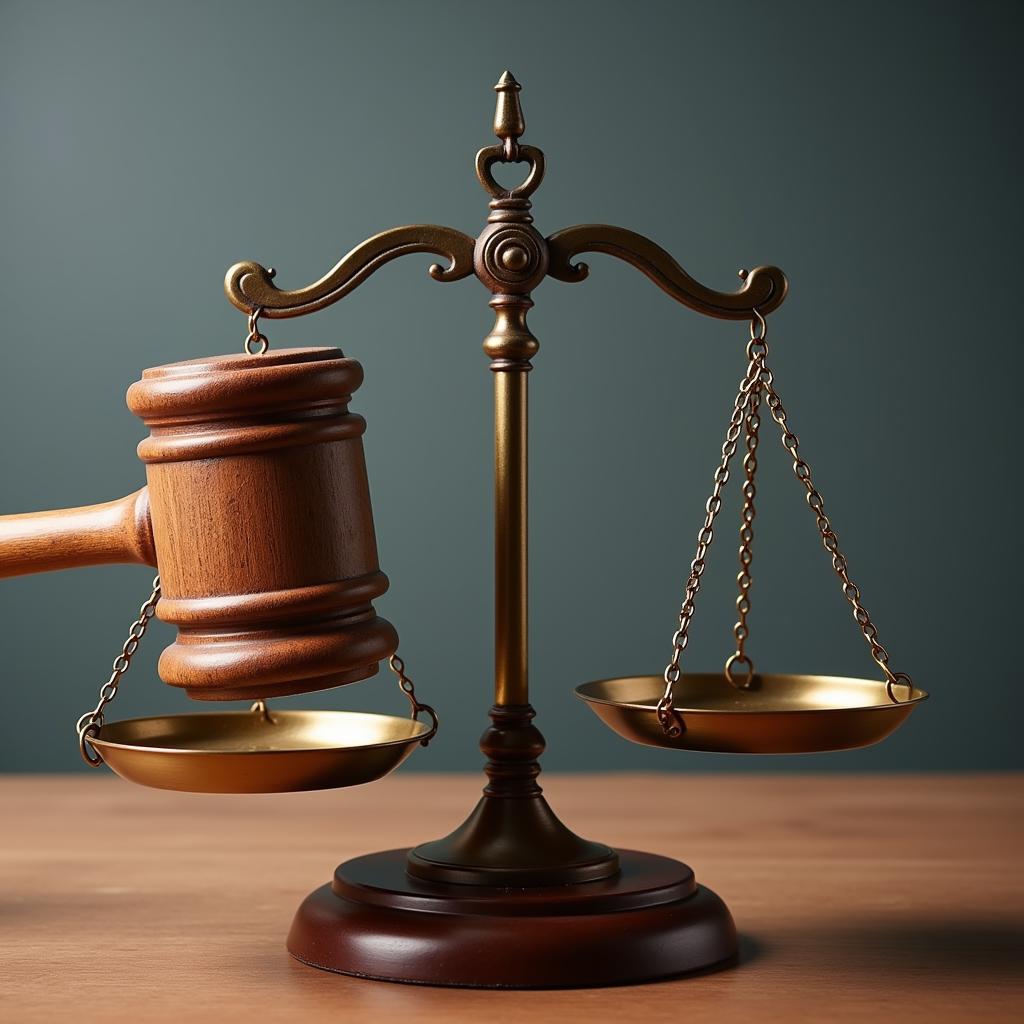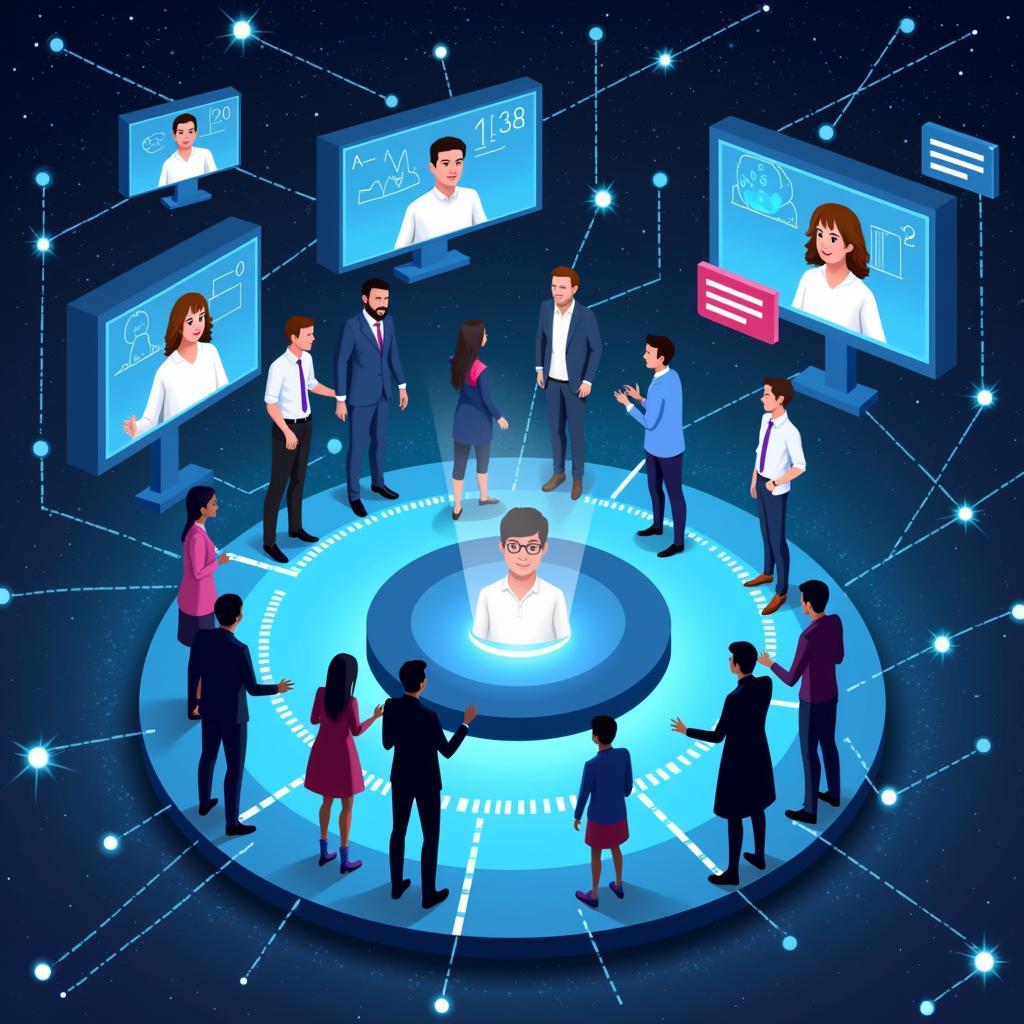I’m With the Banned: Understanding the Phenomenon
November 13, 2024I’m with the banned. This phrase, increasingly common in online communities, encapsulates the feeling of solidarity with individuals or groups who have been excluded, often unfairly, from digital spaces. It’s a rallying cry, a statement of support, and a reflection on the power dynamics of online platforms. But what does it mean to be “with the banned,” and what are the implications of this growing trend?
Exploring the “I’m With the Banned” Sentiment
The sentiment behind “I’m with the banned” often stems from a belief in free speech and open dialogue. Many feel that banning individuals, particularly for expressing unpopular opinions, stifles healthy debate and can lead to echo chambers where dissenting voices are silenced. This can be particularly concerning when bans are perceived as arbitrary or politically motivated.
Furthermore, the “banned” often become symbols of resistance against perceived censorship. Supporting them can be a way to challenge the authority of platforms and advocate for greater transparency and accountability in their moderation practices. This can be especially true in gaming communities, where bans can impact a player’s progress and social connections. They may seek out resources like those found on a universal time scripts.
“I’m with the banned” also speaks to the importance of community and belonging. Being banned can be isolating and emotionally distressing, and expressions of support can help mitigate these negative effects. It’s a way of saying, “You’re not alone in this.” This sense of community can be vital, especially when individuals are facing accusations of wrongdoing or experiencing social ostracization.
The Complexities of Online Bans
While the sentiment behind “I’m with the banned” is often well-intentioned, the issue of online bans is complex. Platforms have a responsibility to maintain a safe and respectful environment for their users, which sometimes necessitates restricting harmful content and behavior. This can include hate speech, harassment, misinformation, and illegal activities.
Determining what constitutes “harmful” content, however, can be subjective and open to interpretation. Different platforms have different community guidelines, and even within the same platform, there can be inconsistencies in enforcement. This can lead to accusations of bias and censorship, fueling the “I’m with the banned” sentiment.
 Online Ban Hammer and Justice Scales
Online Ban Hammer and Justice Scales
Moreover, some individuals actively seek to be banned, viewing it as a badge of honor or a form of protest. This can complicate the narrative and make it difficult to discern genuine cases of unfair censorship from deliberate attempts to provoke a reaction. This also raises questions about the effectiveness of bans as a moderation tool. Some might find alternative entertainment, such as exploring options like a murder mod sims 3.
Navigating the Digital Landscape
The “I’m with the banned” phenomenon highlights the ongoing tension between free speech and platform governance in the digital age. As online communities become increasingly central to our lives, it’s crucial to have open and honest conversations about these issues. How can we balance the need for safety and civility with the right to express unpopular or controversial viewpoints? How can platforms improve transparency and accountability in their moderation practices?
 Digital Landscape and Online Community Discussion
Digital Landscape and Online Community Discussion
One approach is to advocate for clearer and more consistent community guidelines. Platforms should also provide mechanisms for users to appeal bans and challenge moderation decisions. Increased transparency about the decision-making process can help build trust and reduce the perception of bias. Others may turn to modifications or cheats, researching resources such as desync rust cheat, to gain an advantage.
Furthermore, fostering media literacy and critical thinking skills is essential. Users need to be able to evaluate information critically, identify misinformation, and understand the potential consequences of their online actions. This includes understanding the terms of service of the platforms they use and engaging in respectful dialogue, even when disagreeing with others. Fans of other games, looking for ways to enhance their experience, might be interested in simpsons tapped out apk mod. Similarly, football enthusiasts looking for a sense of community might be drawn to groups like the banned squad.
Conclusion
“I’m with the banned” is more than just a slogan; it’s a reflection of the complex and evolving landscape of online communities. While supporting those who have been banned is important, it’s equally crucial to engage in nuanced discussions about the challenges of online moderation and the need for responsible digital citizenship. By understanding the complexities of this issue, we can work towards creating online spaces that are both safe and inclusive, allowing for free expression while mitigating harmful behavior.
FAQs
-
What does “I’m with the banned” mean?
It expresses solidarity with those excluded from online platforms, often perceived as unfairly. -
Why are people banned from online platforms?
Reasons range from violating community guidelines to engaging in harmful behavior like hate speech or harassment. -
Is it always wrong to ban someone online?
No, platforms need to maintain safety and order, but bans should be fair, transparent, and accountable. -
How can we improve online moderation practices?
Clearer guidelines, appeal mechanisms, and greater transparency are key to building trust and fairness. -
What is the role of users in fostering healthy online communities?
Media literacy, critical thinking, and respectful dialogue are essential for responsible digital citizenship. -
What are some of the consequences of online bans?
Bans can lead to social isolation, emotional distress, and can impact a player’s progress in online games. -
What are some alternatives to banning users?
Alternatives include temporary suspensions, warnings, and content removal.
Situations leading to common questions:
- Scenario 1: A user is banned from a social media platform for expressing an unpopular political opinion.
- Scenario 2: A gamer is banned from an online game for allegedly cheating, but claims they were falsely accused.
- Scenario 3: A content creator is banned from a streaming platform for violating community guidelines on hate speech.
Suggested further reading:
- Check out our article on “Understanding Online Community Guidelines”.
- Learn more about “The Impact of Online Bans on Mental Health”.
Call to action:
For support, contact us 24/7:
- Phone: 0915117113
- Email: [email protected]
- Address: To 3 Kp Binh An, Phu Thuong, Viet Nam, Binh Phuoc 830000, Vietnam.